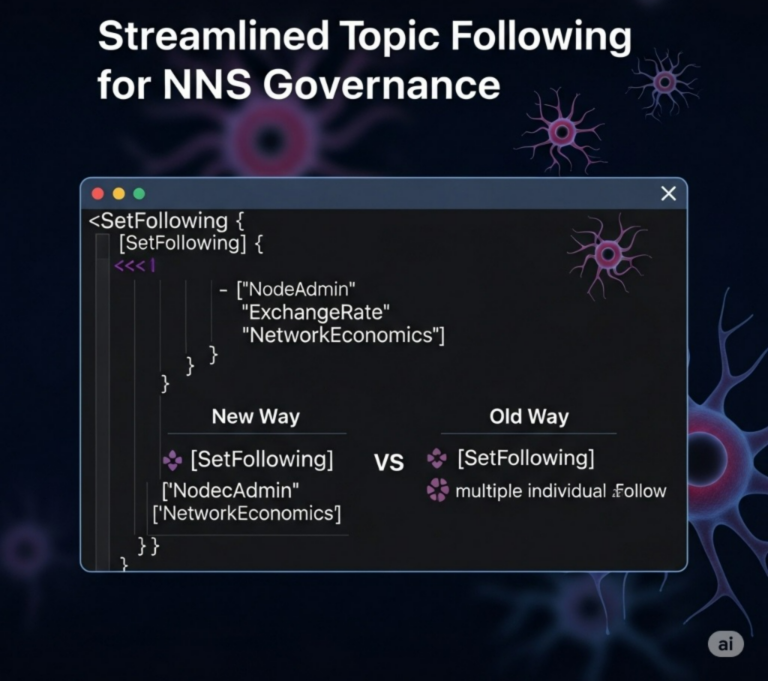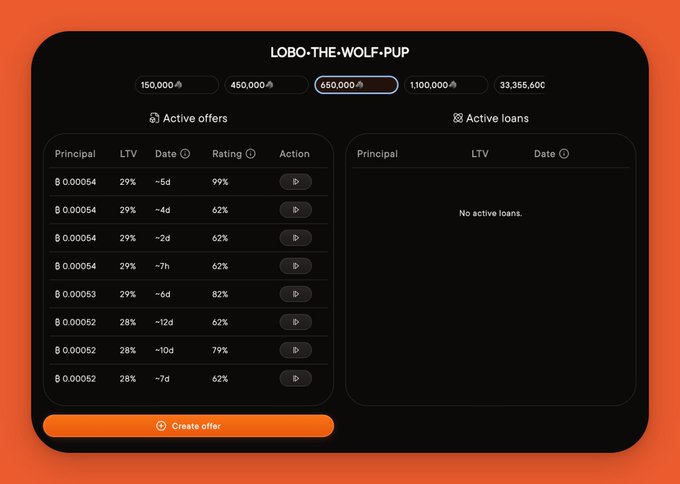Motoko DAO is rolling out a two-month staking campaign that blends community participation with a healthy dose of game mechanics. Aptly titled Summer Staking Mania, the event kicked off on 1 July and will run through to 29 August, offering high APYs—around 25%—alongside a series of themed staking challenges, rewards and even NFTs.
The campaign is built around seven events, each designed to encourage deeper engagement with the Motoko DAO governance system. Whether it’s teaming up with another staker, hitting milestones collectively, or holding one of the DAO’s signature NFTs, participants have multiple ways to get involved. At the centre of it all is a strong emphasis on locking tokens into long-term neurons—specifically, neurons that are non-dissolving and set to the maximum dissolve delay.
The terms are fairly straightforward. To be eligible for rewards, neurons must be created after 1 July 2025 (unless stated otherwise), must contain at least 2,500 MOTOKO tokens, and must remain locked throughout the campaign. Prizes are paid directly into the neuron itself and distributed via on-chain proposal. The rules allow for multiple neurons, as long as each entry meets the conditions.
The first of the events, Motoko Milestones, is a group challenge that pays out progressively as staking totals hit set targets. Once 25 million MOTOKO is locked, a reward pool of 100,000 MOTOKO will be split among all eligible neurons. At 30 million, the reward rises to 150,000 MOTOKO, and at 35 million, the final milestone releases a 200,000 MOTOKO payout. The total pool for this portion of the event is 450,000 MOTOKO, making it the largest of the campaign.
A more social challenge comes in the form of Tag Team Staking. Participants pair up, tag each other in the DAO’s discussion thread, and share their neuron IDs. The duo with the highest combined stake each week wins 2,500 MOTOKO. With nine weeks of potential rewards, this event holds a 22,500 MOTOKO prize pool. It’s also a subtle way to drive community connections while amplifying engagement.
Lucky Motoko takes a different approach, opting for weekly random draws. Each week, three qualifying neurons will be selected at random to receive 1,000 MOTOKO each. Entrants need only share their neuron ID in the campaign thread to take part. Like the tag team challenge, this event is worth a total of 27,000 MOTOKO across the duration of the campaign.
NFT collectors have a chance to get involved through Collection Collector, which offers weekly prizes of 250 MOTOKO to one holder from each DAO Collection. Eligible collections include Motoko Ghosts, Motoko Pals, B.A.D 3D Avatars, and all Flower Power variants. Participants must share both their NFT and neuron ID in the thread to enter. The total reward pool here is 24,750 MOTOKO, with prizes awarded weekly.
For early supporters, Genesis Governance provides a nod to those who have been staking since before the campaign began. Neurons created before 1 July—configured to non-dissolving and set to the max delay—are eligible for random selection. Each week, three winners will be picked to receive 1,000 MOTOKO each. The total pool here also sits at 27,000 MOTOKO.
Another lucky draw comes in the form of Motoko Ghosts, which awards a single jackpot of 2,500 MOTOKO to one eligible neuron each week. Again, neurons must be set to non-dissolving with the maximum delay. Entries are collected in the same thread as other events, and the total prize pool is 22,500 MOTOKO.
To round out the campaign, Motoko Mania will award one rare Motoko Ghost NFT to a randomly selected eligible neuron at the very end of Summer Staking Mania. No MOTOKO tokens are awarded for this particular event—it’s purely for the NFT collectors who stick around to the finish line.
All event entries are managed through the Motoko DAO’s discussion thread, and it’s made clear that each post should specify which event it’s for. Participants can enter multiple events with different neurons, but must submit individual posts for each entry. Proposals will be used to manage reward distributions, in keeping with DAO procedures.
On the face of it, this is part marketing push, part governance incentive. High APYs are naturally a draw, but the layered events encourage users to interact more meaningfully with the DAO and with each other. It also rewards loyalty to the DAO’s governance model by requiring full lock-up of tokens during the campaign.
The focus on non-dissolving, max-delay neurons signals a longer-term bet by the Motoko DAO. These settings maximise both voting power and rewards, but they also require full commitment. That said, the DAO has previously offered mechanisms for participants to adjust their dissolve delay after campaigns conclude, depending on future proposals.
By attaching different forms of participation—milestones, partnerships, chance-based draws, and NFTs—the campaign appeals to a variety of users. Some will be in it for the numbers, some for the art, and others simply for the interaction.
The Motoko token itself has carved out a niche within the Internet Computer ecosystem as a governance token for projects that use Motoko, the native programming language for the network. Its DAO has launched various NFT collections and supported community grants, while also serving as a testing ground for innovative governance formats.
Summer Staking Mania looks to build on that by turning staking into a more interactive process. Instead of quietly locking tokens and checking back weeks later, participants are asked to engage in public threads, share IDs, team up, and take part in themed challenges. It’s part campaign, part community activation.
With high yields, gamified formats, and a growing community, Motoko DAO is clearly hoping this staking season will draw attention, commitment and fresh energy. Whether you’re a long-time holder or someone newly curious about the Internet Computer’s DAO scene, Summer Staking Mania offers more than just static rewards—it turns staking into something you can actually take part in.
Dear Reader,
Ledger Life is an independent platform dedicated to covering the Internet Computer (ICP) ecosystem and beyond. We focus on real stories, builder updates, project launches, and the quiet innovations that often get missed.
We’re not backed by sponsors. We rely on readers like you.
If you find value in what we publish—whether it’s deep dives into dApps, explainers on decentralised tech, or just keeping track of what’s moving in Web3—please consider making a donation. It helps us cover costs, stay consistent, and remain truly independent.
Your support goes a long way.
🧠 ICP Principal: ins6i-d53ug-zxmgh-qvum3-r3pvl-ufcvu-bdyon-ovzdy-d26k3-lgq2v-3qe
🧾 ICP Address: f8deb966878f8b83204b251d5d799e0345ea72b8e62e8cf9da8d8830e1b3b05f
🪙 BTC Wallet: bc1pp5kuez9r2atdmrp4jmu6fxersny4uhnaxyrxau4dg7365je8sy2q9zff6p
Every contribution helps keep the lights on, the stories flowing, and the crypto clutter out.
Thank you for reading, sharing, and being part of this experiment in decentralised media.
—Team Ledger Life












